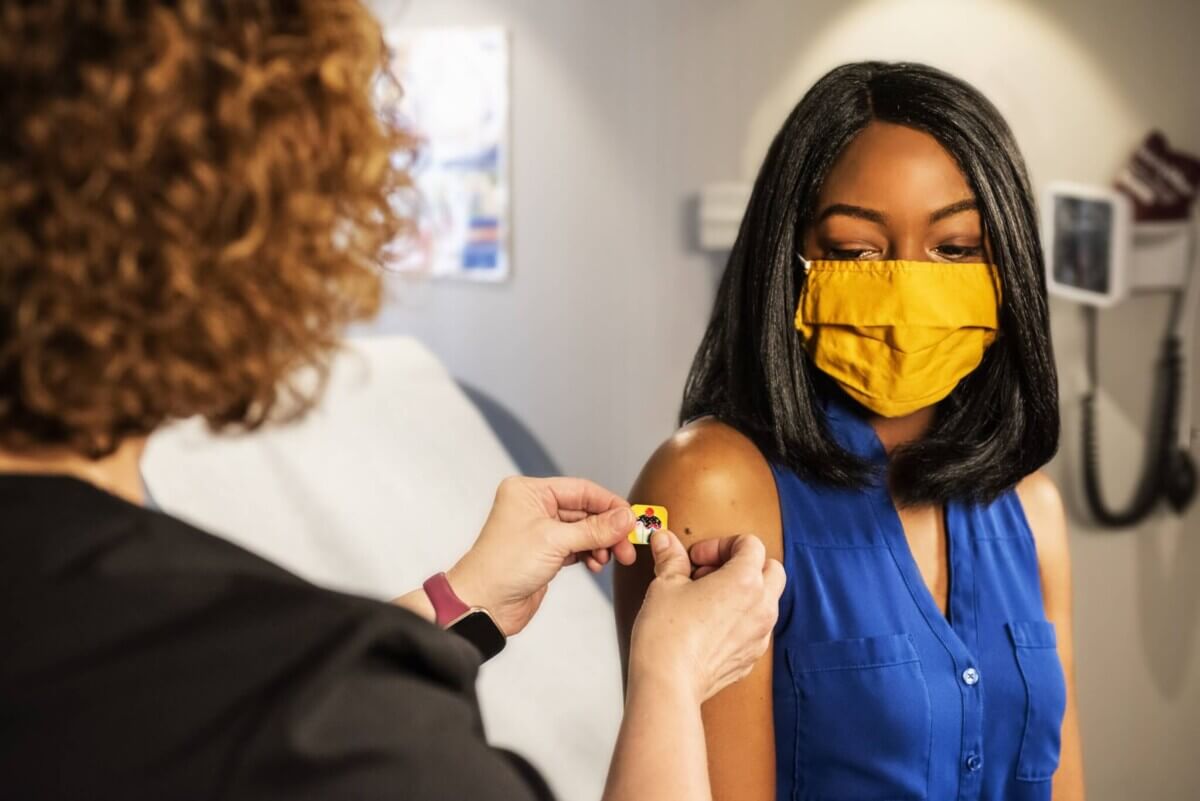
(Photo by CDC on Unsplash)
BOSTON — In recent months, anecdotal reports of changes in menstrual cycles after receiving a COVID vaccine have raised concerns. However, a new study led by researchers at the Boston University School of Public Health suggests that the vaccines are not to blame for major changes in the menstrual cycle. Instead, any observed changes were likely due to the body's immune response to the vaccine.
“We found that menstrual cycles immediately after vaccination were on average one day longer than pre-vaccination cycles. In other words, the onset of the next menstrual period after vaccination was slightly delayed,” says Amelia Wesselink, lead author and SPH research assistant professor of epidemiology. “We also found that cycle length returned to normal within a few cycles.”
The study tracked 1,137 participants between January 2021 and August 2022, all identifying as female, between 21 and 45 years-old, and attempting to conceive without fertility treatment. Researchers compared 437 participants who received at least one vaccine dose to 700 unvaccinated individuals. They discovered that menstrual cycles increased by 1.1 days after the first dose and 1.3 days after the second dose. However, these changes resolved within one to two menstrual cycles. No strong associations were found between vaccination and other menstrual cycle characteristics.
The study confirms that the small alterations observed in cycle length were not caused by the vaccine itself but were likely a result of the body's immune response. The researchers emphasize that these short-term changes are unlikely to have a significant impact on fertility.
Wesselink affirms the safety and effectiveness of COVID-19 vaccines in preventing severe illness and death from the virus, particularly for pregnant individuals.
“COVID-19 infection during pregnancy is also associated with poorer outcomes for both the birthing person and the baby,” Wesselink adds in a university release.

The study participants were part of the Pregnancy Study Online (PRESTO), a long-term internet-based fertility examination funded by the National Institutes of Health. This research builds upon previous studies by the BU team, which found no evidence of COVID vaccines causing infertility or affecting pregnancy chances.
“We hope that these results help reproductive-aged individuals make informed decisions about their health, ” Wesselink concludes.
Moving forward, the researchers plan to leverage the PRESTO data to explore other factors that may impact menstrual cycle characteristics, aiming to shed light on this understudied topic that can significantly affect the quality of life for many.
The study's findings are published in the journal Vaccine.











COVID vaccines do not affect menstrual cycles, new research confirms
JULY 12, 2023
But the article mentioned several changes!!
So stupid, I don't know why I read these. Many, many, many DR are on record expressing the effects of the shot on a woman's reproductive health. The shot obviously has had some effect. It's propaganda to say otherwise.